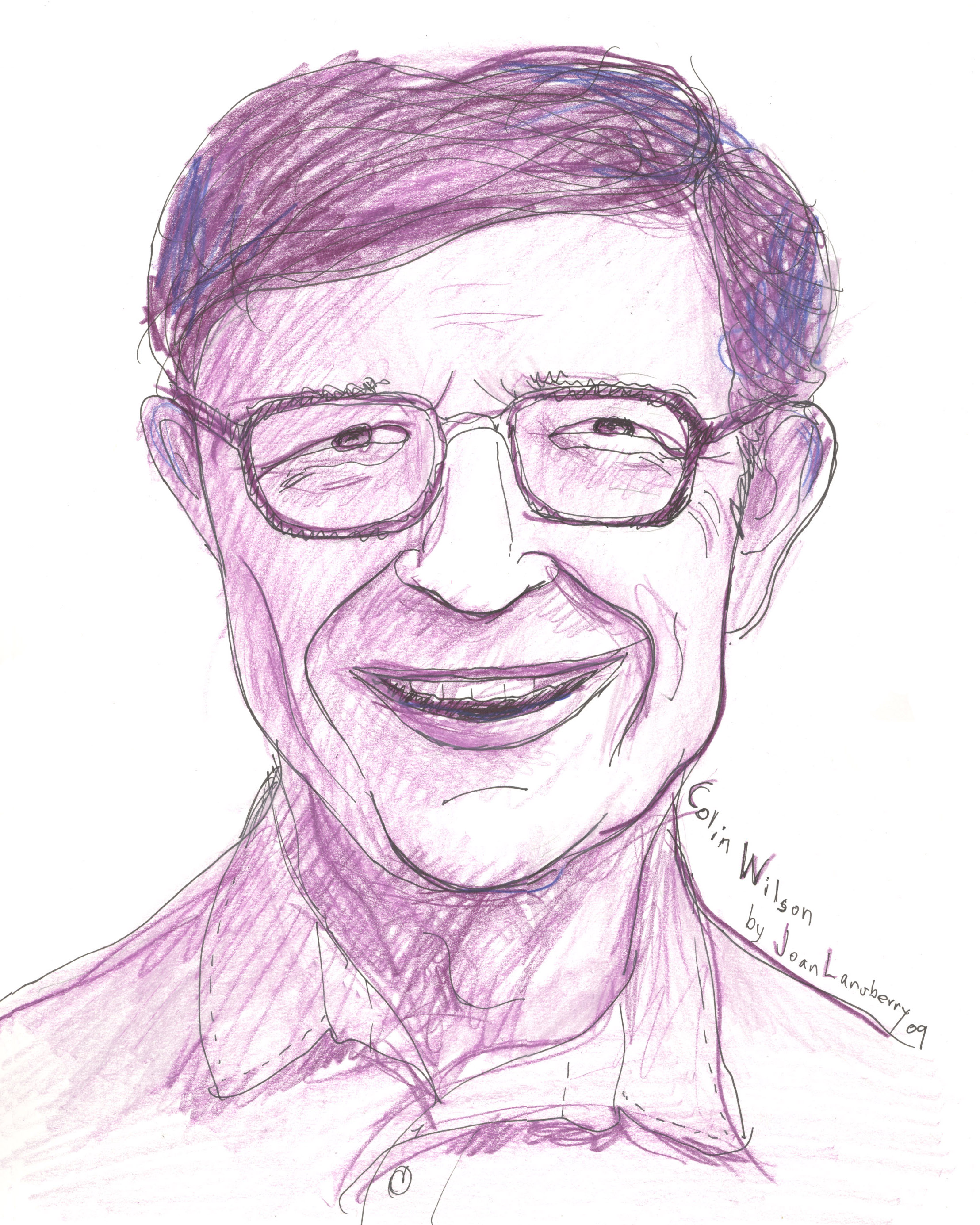
"I've always been interested in too many things"
(Or so he believes 'the public' thinks.)

"I've always been interested in too many things" |
|
January 10, 2009
This evening, after reading a couple of the main articles in the latest KMT, (lovely article and photos of Yuya's and Thuya's tomb stuff and another on fascinating fakes), I grabbed the Wilson book. I didn't get far before I spied something I just had to write down:
"One implication, according to Schwaller, is that there must be some method of accelerating the pace of human evolution. The reason this statement excited me so much was because it has been the underlying theme of all my own work. I had noticed, as a child, that at Christmas the whole world seems to be a far richer and more wonderful place than we normally recognise. But of course, what I meant was that consciousness itself can be far more intense than the everyday consciousness we accept as 'normal'. This 'intenser' form of consciousness often appears accidently, in moments of relaxation or relief when a crisis disappears, yet when we experience it, we recognise that it is somehow 'normal', merely a different way of seeing things and responding to them. One of the basic characteristics of this state of 'heightened consciousness' is that it seems to involve the proper use of our mental energy, instead of wasting it. Normal consciousness is like a leaky bucket, or a tyre with a slow puncture. In certain moods we seem to get the 'trick' of closing the leaks, and when that happens, living ceases to be hard work, and turns into a continual glow of satisfaction and anticipation, like the feeling we get when setting out on holiday. I sometimes call this 'duo-consciousness', because it depends on being conscious of two realities at once, like a child sitting in front of a warm fire and listening to the patter of rain on the windows, or the feeling we get lying in bed on a freezing winter morning, when we have to get up in five minutes, and the bed has never seemed so warm and comfortable.
Our personal development depends upon what might be called 'intensity experiences'. Such experiences may be pleasant or unpleasant, like the experiences of Paris in Helen's arms, or the experiences of a soldier under fire; but they certainly have the effect of causing some kind of minor yet permanent transformation of awareness. Yet it seems a pity that our development depends upon the chance of having such experiences, when consciousness is a state, not a mere product of what happens to us. A cook can make jellies and cakes; a carpenter can make tables and cupboards; a pharmacist can make sleeping draughts or pick-me-ups. Why should we not be able to make our states of consciousness by understanding how they come about?" (From _From Atlantis to the Sphinx: Recovering the Lost Wisdom of the Ancient World_ by Colin Wilson,
page 13)
When I looked up more about this author, I learned that Wilson has a book available later this year called _Super Consciousness: The Quest for the Peak Experience_, which is certain to be a most rewarding read.
Finding photos of Wilson, I decided to give him a try. With a large size photo at Wiki and a tiny size photo at the New York Times, I went for the 11x14 bristol board, after first finding the 8 1/2 by 11 inch paper too confining.
The New York Times article writer interviewed Wilson, giving him a chance to say:
"One of my main problems as far as the public is concerned is that I've always been interested in too many things," Mr. Wilson said, "and if they can't typecast you as a writer on this or that, then I'm afraid you tend not to be understood at all."
Well, maybe he might not be widely understood and as popular as some other type of writer who just sticks to one genre, but he certainly has those who can follow him here and there. Meanwhile, I relate to what he's saying, in my not-so-humble way!
I can't imagine having just one narrow interest, I must follow my curiousity whereever it leads.
|


